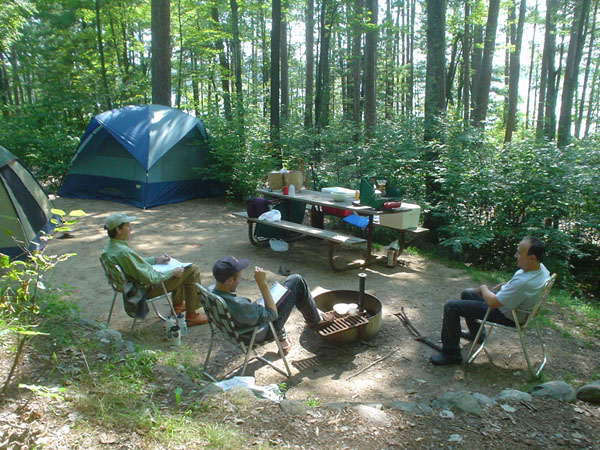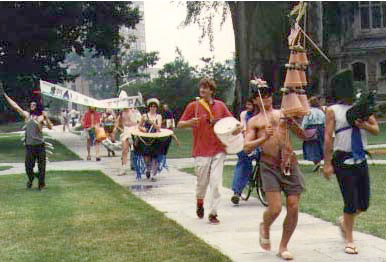After reading the following Salon post, I continue to be intrigued by the dominance these days of art which seems proud of having no content. The stifling cool of irony keeps clinging. Clever style, atmosphere and pose STILL seem to be the main values. What’s there to actually INSPIRE anyone? I feel sorry for kids today. Kids need art. The pop songs of our own kids lives are basically, literally, nonsense. There’s no relevance, no uplift.
It’s a post about the “economy.” But I’d like us to always remember to add “…and the wars” whenever the writers list the relevant subjects the culture is ignoring today.
Check it out…
www.salon.com/2011/10/13/why_branding_wont_save_the_creative_class/
I quote:
“The tale of our times,” O’Neill wrote in his piece on the silence of the new depression, “is mostly being told by our unwillingness to tell it.”
[…]
Is it a recession, a transition, a reset, or all of the above? “I think we’re nowhere,” says Donnelly. “We’re in a no man’s land.”
[…]
The human cost of this latest economic/technological shift has been ignored. Many of us, says Northern California writer Jaime O’Neill, are living in a depression. “It’s hard to make the word stick, however, because we haven’t developed the iconography yet, he writes in a recent essay titled “Where’s today’s Dorothea Lange.”
A fading creative class — experiencing real pain but less likely to end up in homeless shelters, at least so far, than the very poor — may not offer sufficient drama for novelists, songwriters or photographers.
But journalists themselves have also ignored the human story all around them. In fact, the media — businesses that have been decimated by the Internet and corporate consolidation — have been reticent at telling the tale of this erosion. Good newspapers offer responsible coverage of the mortgage meltdown and the political wars over taxes and the deficit. But it’s easier to find a story about a plucky worker who’s risen from layoff to an inspiring Plan B than it is the more typical stories: People who lose their livelihood, their homes, their marriages, their children’s schooling because of the hollowing-out of the creative class and the shredded social safety net. Meanwhile, luxury coverage of homes, fashions, watches and wine continue to be a big part of magazines and newspapers.
My turn…
Do we really grasp the idea that there can be no more John Steinbecks, Ed Abbeys, Hunter Thompsons. Much less Bukowskis. Certainly no Thoreau, but that’s going a bit far back. They would all be PREVENTED. And think of the socially relevant writing, music, art and movies of the 60’s that helped bring about liberation for women, minorities, gays, the environment, heck, even health and safety. All that kind of influence from the arts is no longer possible due to the takeover of Pose & Style. Thankfully, the legal model that was built then is still functional. In part. A little bit. But of course it’s changing and has been transmuted. Art needs to explore how and where it’s going for even the legal model to stay alive. But art can no longer do this. It is prevented.
The art that DOES do this is shunted into microniches, or smaller. …And not because of its micro market potential. Big Picture, General Interest art today isn’t concerned about growth and impact, but about pleasing its own ever-shrinking niche and 1% powerbrokers.
Both the Occupy Wall Street protests and the Tea Party scene are pretty big deals in their own ways. They’re advancing their agendas. But it seems like they’re doing this in the absence of contributions from the arts. The arts are left to their niches, and they stay in their niches. Of course there are political/activist artists who work for their causes — but this still stays within the niche model. It all seems a kind of preaching to the converted. Sales of end-times novels are booming, exciting, inspiring, scaring and thrilling evangelicals. They work just like amusement parks on their audience. …Niche art. I’m talking bigger fish.
The tiny, zero-budget literary activist group — the ULA — I was involved with a few years ago tried to do something about the introvertedness of literature (and also its academization). We made a global splash…then imploded. The cultural situation is even worse today. We’re still the only literary activist group I’ve ever heard of. Well, probably the only one that’s existed in recent decades. No one else has taken up the gauntlet of protest and noise-making to expose the specific corruption and systemic vacuity of those who are getting the shrinking dollars of the “creative class.” No meritocracy, no relevance — the 1% is grabbing the whole pie here, too. It might not add up to much, but it doesn’t have to, as those players are mostly already independently wealthy. But the arts lead! We shouldn’t forget that. And their abdication of duty says as much as what they do.
A couple HUGE things in the past DECADE still don’t really seem to be honestly being dealt with in the arts: Economic collapse and Wars.
The only reason for this disconnect is that those who are running the cultural show are ISOLATED from reality. Yes, even if they can buy protection there still is only ONE reality. Their side of it is gated, is all — we can’t let them forget that.
Is there any surprise that the major arts are hollowing out? They’re speaking only to a niche. That might be cool in some view of marketing. But it’s the end of the hip-pocket paperback. It’s the end of social hope coming thanks to cultural creativity. That’s bad. Coz that’s the only place it comes from. Kids in foxholes RIGHT NOW have questions that those who are in a position to deal with them are refusing to.
“Well, books have so much competition today from other media.” Baloney! It’s not fewer books per se that is the issue. It’s THOUGHT. Liberating thought isn’t coming in from other sectors and diluting the role of books in THINKING. New exploitation is coming along that is impeding thought. People — innocent youth — stumbling down sidewalks hunched over their clicky-devices aren’t getting what used to be available from books just in some other format. They’re becoming zombies and books are PREVENTED from coming to the rescue!
See George Orwell’s “The Prevention of Literature,” to see why I like this word “prevented.” Banning books doesn’t work. Banned Books Week is SO STUPID as it hearkens back to the bad old days while missing today’s far more effective suppression of thought.
Of course, given today’s “laptop creatives” (as mentioned in the article below) we should just be able to do an end-around the fancy lads and make our own art, get it out there, and take over from them, if they’re going to drop the ball. This neglects the lock-down. Even today you can’t get there from here. The push hasn’t happened. It’s happened in some aspects of culture but not in the Big Culture. The big game is simply given up to those pulling the strings behind the walls. Your talent matters not a whit. Nor does your guerrilla marketing.
But we COULD break through if we joined forces better and pushed all over again, harder. Synergy is key. …In a world that’s more segregated than ever. Divided we fall. Specialties are doing better than ever, thanks to thriving online forums of expertise. Microcultures are thriving — in urban bike projects, local food efforts, indie record labels. People aren’t watching network TV: everyone has their own channel. But the niches are weak in terms of general cultural leadership. They’re trying to stand alone. It works, but only in each tiny scene. And, often, a big corporation still either owns the little channels or calls the shots in some critical way. (Our local big newspaper was bought by Gannett, then gutted. Now all the little neighborhood papers ringing the city have been bought by Gannett. Thankfully, the local arts tabloid, the City Pulse, has hung in there. Gannett killed its Pulse-killer rival tabloid. Maybe they don’t see the city as the main market anymore? They’re collecting little voices instead.)
Remember, the ULA had the bosses nervous for a while there and we just had a dozen of us and no money. We stood outside $1000 dinners and waved placards asking why starving writers never got grant money, why the money always went to those who were already on track. We got traction. Fear (and paranoia) was our undoing. Underground artists wouldn’t join in because they still hoped they’d get a scrap someday and didn’t want to burn their imaginary bridge. In this free land, try criticizing the arts and see where it gets you. I don’t mean rants’n’whining — I mean try to challenge the system and get something done in a new way.
Well, the whole thing is coming down now. Everyone is fleeing to academia, if only to kill time, but it’s not sustainable either. The remnants there are more desperate than ever. Faculty have been turned into temp-slaves, but there are indeed folks on top running the show. Someone benefits from the death of tenure. Think: Brazil’s mansions on the hills with cardboard slums huddled around them, and today’s Russian plutocracy.
Everyone gets what they take. We wouldn’t have had an educated middle class, for instance, unless the middle class TOOK it. If you rise up enough to take something then you’re finally at the level needed to have it. If it’s given to you it means you weren’t ready, you weren’t an equal partner in the relationship, so you won’t recognize it. It won’t stick. Of course, how do we rise? We need many forces under us, helping to build us up. These forces are comprised of all of us doing our duty. Paying our debts for the privilege of living. It all works together. but it doesn’t have to. If anyone slacks then a mansion/shacks arrangement will result.
Where do we go from here? What’s the next step after “People cost too much.”
Let’s remember the DIY Spirit that devastated places like Detroit have long ago learned is key. Fun on the porch. Do stuff in your own neighborhood. The park is your restaurant. Don’t overlook roadkill…
Like the Dread Clampitt song, “Granny Brown,” where Balder’s barefoot granny said “There weren’t no Depression / We always lived that way.”
But don’t take it from me. …Salon says so, too, in its own way.




